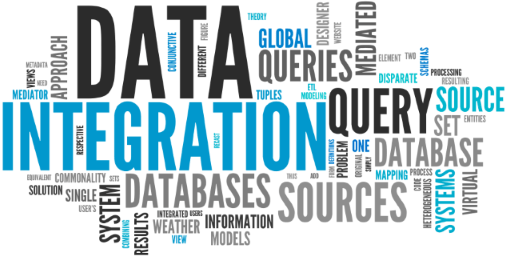The 5 main reasons why you should introduce a market data management
- Cost savings
- Market Data cost transparency: who uses what and how.
- Being compliant in market and vendor audits
- Updated information on costs by: person, department, area, entity, vendor, product, location, etc.
- Increased bargaining power with vendors and markets
Market Data Management
In the past, the stock markets did not have competitors – if a financial entity wanted to offer the possibility to buy instruments from Euronext, the only available option was to buy them from Euronext’s traditional market, thanks to their local market membership or through other global brokers that were members of said market.
Back then, the biggest source of income of traditional markets was generated by the transaction costs.
However, this panorama has changed. A few years ago, the MTF (Multilateral Trading Facilities) showed up as a consequence of an initiative launched by the EU that regulated operations outside financial markets. The MTF offers investors and investment companies an alternative to traditional financial markets. They allow to operate in a wider variety of markets than most financial markets, even with assets that do not have an official market.
This has caused a decrease in the transaction income of stock markets. In order to compensate for this, stock markets have been making the most out of the data they have. They are creating new segments and new information packages in order to optimize these data.
Market data comes third when analyzing costs in financial entities, the first and second cost centers being staff and infrastructure.
Therefore, it can be assumed that an improvement in cost management, usually called market data management, can have a positive effect on the entity’s annual cost savings.
So far, in most entities there hasn’t been a proactive market data management. Bills are paid when they coincide more or less with the bill from the previous period, since there is no way to verify whether they are correct or not.
In the rest of Europe and the USA, the position of the Market Data Manager and the Market Data Department are a reality and they are of utmost importance within the entity.
In many countries there are Market Data management professionals that meet periodically to discuss techniques, different ways to optimize market data management, and the trends in this field. They also request vendors that, whenever they want to introduce a new service, they do it to all entities at the same time. All of this helps create market transparency and give prominence and power to entity versus vendors.
In Spain, until recently, this was unimaginable since market data management was limited to what was done when a user wanted a new terminal or wanted to add a new market to the terminal they already had.
An improvement in cost management, usually called market data management, can have a positive effect on the entity’s annual cost savings.
The financial risk of not implementing a market data management
However, this tendency is starting to shift directions, not only because of the increasing interest shown by financial entities in controlling and optimizing costs but also because of the audits that stock markets and data vendors are carrying out in entities. This tendency of carrying out audits has the aim of studying where and how the data is being used and introducing new user licenses from stock markets and vendors, which increase their revenue.
The objective of all markets is to thoroughly control who is receiving their data and how they are using it.
Up until very recently. The lack of total transparency due to the absence of a real market data management didn’t bring about any consequences since once being audited, agreements were reached. Now it seems that different stock markets are increasingly requiring a more clear vision of their data use – posture backed up by the transparency required by European regulations like MiFID.
The consequences of the lack of transparency brings about million-dollar fines, as entities must prove “their innocence” and if they cannot do so, different markets impose backdated fines that can reach up to 5 years back in time.
The best defense against these audits is having a market data management that could show:
- The contracted data
- Who can access the data
- The profiles of data users
- What they use the data for
In order to perform a market data management, market data inventory control systems are needed, which allow to organize this information and they give the entity the kind of essential transparency required during audits.
What is more, once these systems are implemented, the entity can reduce the time invested in administrative management and focus instead on value added services, such as: analysis of alternative products for users, better attention to demand, etc.

How to achieve real cost savings thanks to market data management
The most important entities, which are following the procedures of North American and European banks, are opting to create or boost their market data management department.
SMEs can benefit from having what is called a “managed service” or outsourced service, which allows them to have the necessary transparency without the need to invest on additional resources for this management.
Some of the services offered by these managed services are:
- Contracts management
- Cost allocation
- Invoice conciliation
- Permissioning
- Reporting
- Quote planning assistance
The entity can access the information at any given moment and be sure that it is up-to-date and corresponds to what was hired and what is being used.
This situation can be seen as a lifeguard when being audited, and these processes turn out to be much smoother whenever information from 5 years back has to be retrieved.
What is more, once they see there is a control system, such as a cost inventory system, auditors can tell that there is better control in that entity than in others that do now own that kind of service, with the positive consequences this entails.
Also, this type of transparency and control allows the entity to have information and not just data. Information they have:
- Total cost per vendor.
- Market data cost per user, department, division, office, etc.
- If there are users that have similar or duplicate services by two different vendors.
- If there are users that have a much more elevated cost that the average cost of their department.
Besides, the entity has information to carry out a proactive market data management:
- Set notifications to alert contracts cancellation or renewal dates
- See the reasons why there may be differences between the incoming invoices and what was stipulated in the contract
Thanks to all of this, the financial entity gains control over their data management, it can negotiate contracts with better conditions and have control and profitability out of their assets (the market data generated within the entity).
Once the entity gets this recurrent control, it will be able to make other types of analysis such as:
- Demand analysis
- Alternative product analysis
- Etc.


